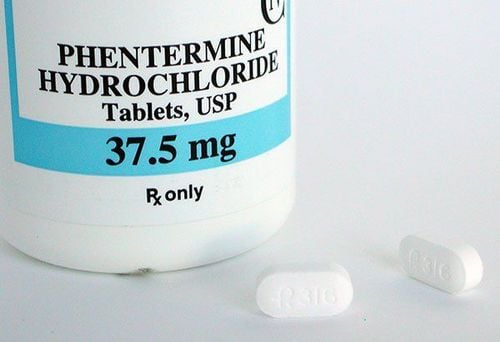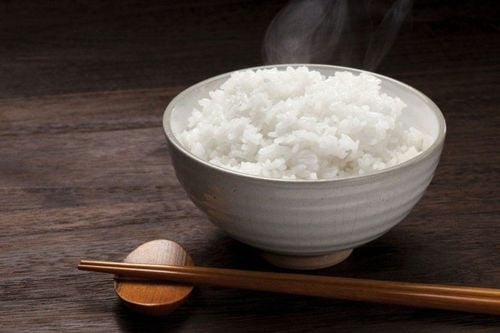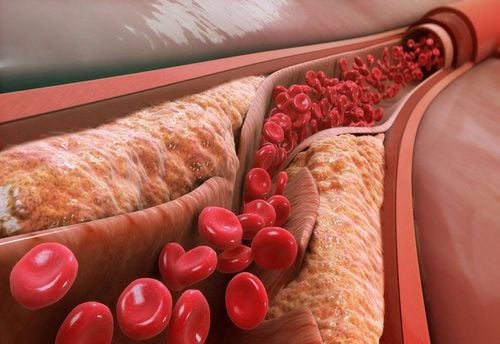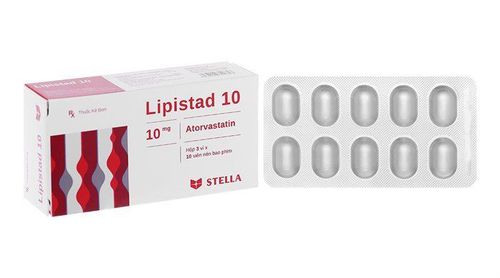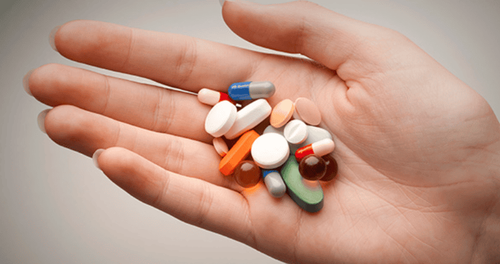This is an automatically translated article.
High blood pressure is a major risk factor for heart disease, kidney disease, stroke and heart failure. Blood pressure levels can be controlled through lifestyle changes such as eating, drinking, physical activity and stress reduction. So what should we do to keep our blood pressure under control?
1. How can high blood pressure be prevented?
Blood pressure of 130/80 or higher is considered too high, also known as hypertension. Blood pressure between 120 -129/80 is considered high. Although it has not yet reached the point of hypertension, it can persist into the future unless lifestyle changes are taken to control blood pressure. The way you can prevent high blood pressure is:
Maintain a healthy weight Lose weight if you are overweight. Eat low-salt foods Eat healthy foods like fruits and vegetables Limit alcohol Get more exercise
2. How is blood pressure related to weight?
As body weight increases, blood pressure can increase. In fact, being overweight can make you more susceptible to high blood pressure than being at your desired weight. Therefore, we can reduce the risk of high blood pressure by losing weight. Even losing a small amount of weight can make a big difference in helping to prevent and treat high blood pressure.
To lose weight, you need to consume fewer calories than you burn. The healthiest and most lasting weight loss occurs when you do it slowly, losing 1/2 to 1-pound a week. If you cut 500 calories/day, eat less and get more physical activity, you can lose about 1-pound in a week.
Here are some tips to help you lose weight and start eating healthy :
Choose foods rich in fiber . High-fiber foods include fruits, vegetables, dried beans, beans, whole grains (not highly processed grains), pasta, rice, and bread. They are low in calories and also a good source of vitamins and minerals.
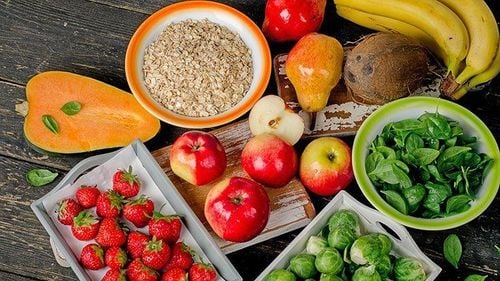
Chọn thực phẩm giàu chất xơ giúp bạn giảm cân và giảm nguy cơ huyết áp cao
Choose whole wheat instead of processed starch. You should choose whole grains instead of processed starches. Avoid starchy foods that are predominantly white in color such as white bread, potatoes, pasta, or rice. Whole grain foods have a higher nutritional value and often help you feel fuller, which also helps you avoid overeating. Portion limit. To lose weight, it's not just the type of food you eat that matters, but also the amount. To absorb fewer calories, you need to limit your portions. Especially try to eat less high-calorie foods like meat and cheese. Food diary. Write down what you eat, when you eat and why. Pay attention to check to see if you snack on high-fat foods first or if you skip breakfast and then eat a hearty lunch. Once you see your eating habits, you can set goals for yourself to work towards. Do exercise. Another key ingredient for weight loss is increased physical activity. Cutting calories and getting regular physical activity can help you lose more weight and keep it off. People who are physically active are less likely to develop high blood pressure than those who are inactive. You don't have to be a marathon runner to benefit from physical activity. Even gentle activities if done daily can help reduce the risk of heart disease.
3. How can salt intake be reduced?
Usually people with high blood pressure when cutting down on salt, their blood pressure will drop. Cutting down on salt also prevents blood pressure from rising. Therefore, we are often advised not to eat salty foods.
According to recommendations, people with high blood pressure should eat less than 2,300 milligrams of sodium per day, about 1 teaspoon of table salt. However, be sure to keep an eye on all types of table salt, including salt in processed foods and salt added when cooking or eating at the table.
Here are a few tips to help you enjoy less salty foods:
Check food labels for the amount of salt in foods. Regularly choose those with a lower sodium content. Look for products that say "sodium free", "very low sodium", "low sodium", "light sodium", "reduced or less sodium" or "unsalted" especially on cans, boxes, bottle. Minimize the use of canned food, instead go for fresh food. Use salt-free herbs, spices, and seasoning mixes in cooking instead of salt. Canned foods like fish should be washed to remove sodium.
A study called the Dietary Approaches to Stop Hypertension (DASH) found that you can lower your blood pressure by eating foods rich in whole grains, fruits, vegetables, and other products. low-fat dairy products.
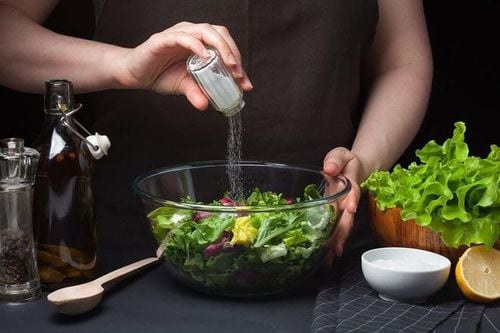
Giảm lượng muối ăn vào có thể có thể giúp giảm nguy cơ huyết áp cao
4. How much alcohol can you drink when you have high blood pressure?
Heavy drinking can increase blood pressure and lead to the development of high blood pressure. So, to help prevent high blood pressure, if you drink alcohol, limit it to no more than two drinks a day if you're male. Women and those who are underweight should limit their alcohol to no more than one drink per day.
You also need to be aware that, wine raises "good" blood cholesterol (HDL), preventing the accumulation of fat in the arteries. While these studies may be true, they don't tell the whole story. Because heavy drinking contributes to a host of other health problems such as car accidents, liver and pancreas diseases, brain and heart damage, increased risk of many cancers, and addiction syndromes. alcohol in the fetus.
5. Can caffeine and stress affect blood pressure?
Caffeine in beverages like coffee, tea and soda can raise blood pressure, but only temporarily. In a short time, blood pressure will drop again. Unless you're sensitive to caffeine, your blood pressure doesn't drop.
Stress can cause blood pressure to rise for a while and over time can contribute to high blood pressure. As a result, you can take many steps to relieve stress.
If you have high blood pressure, the lifestyle changes mentioned above may not be enough to lower your blood pressure. Your doctor may recommend additional medications in your treatment regimen. Many people with high blood pressure need more than one medication to lower their blood pressure. Medications for high blood pressure include diuretics and beta-blockers. ACE inhibitors, receptor blockers, alpha blockers, vasodilators. Many of these drugs are also available as combination pills that use 2 different drugs in one pill.
High blood pressure is not too dangerous, but they are the cause of many serious diseases, greatly affecting health. Therefore, we should actively maintain a scientific diet and exercise regularly so that our health is always guaranteed.
Besides, for people with a history of high blood pressure, it is advisable to have regular medical check-ups so that doctors can understand the condition and make appropriate adjustments. Currently, Vinmec International General Hospital has implemented a Hypertension Examination Package to help determine the causes, complications and levels of hypertension, thereby taking appropriate treatment measures for the disease condition.
Hospital visits are always performed by a team of doctors and medical staff with expertise and training, helping to bring the best satisfaction to customers.
Please dial HOTLINE for more information or register for an appointment HERE. Download MyVinmec app to make appointments faster and to manage your bookings easily.
Reference source: webmd.com



